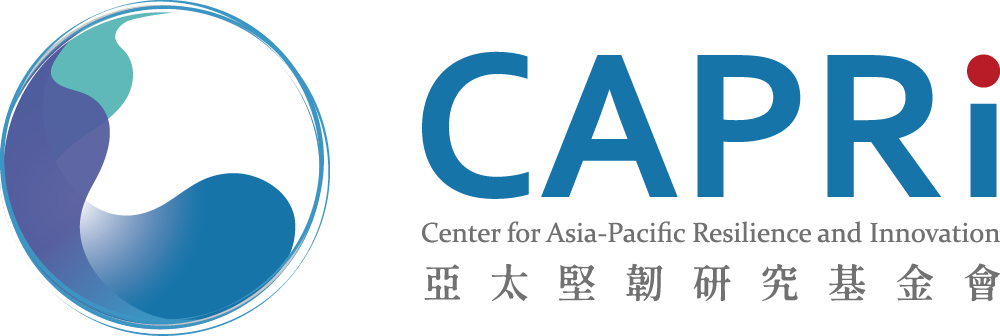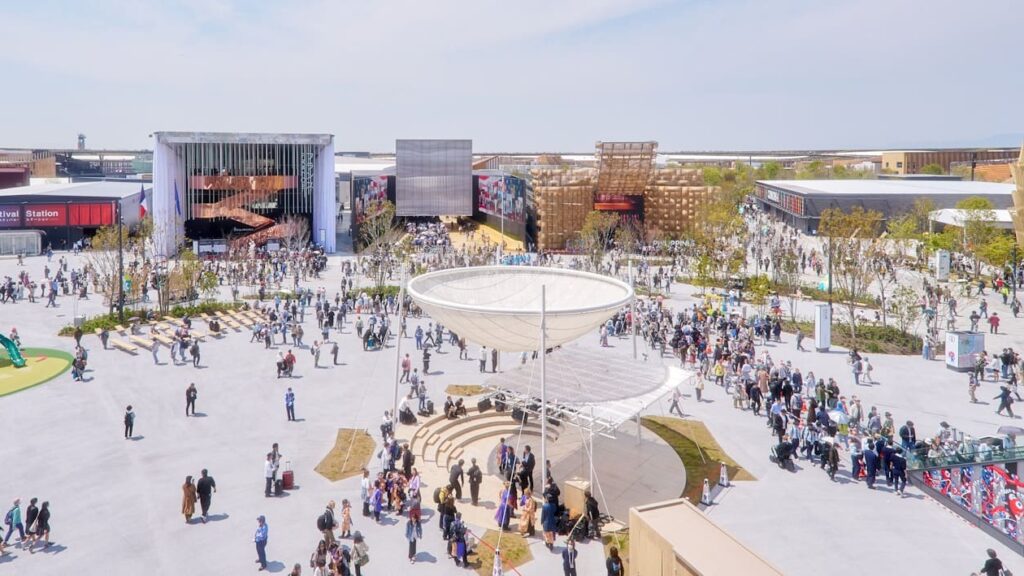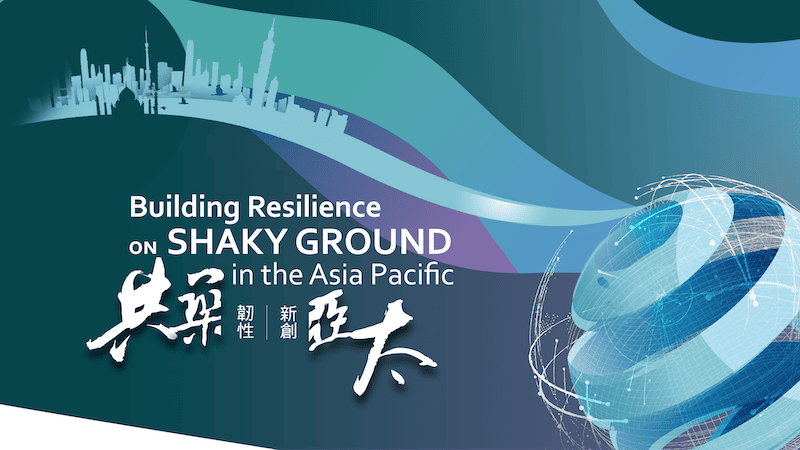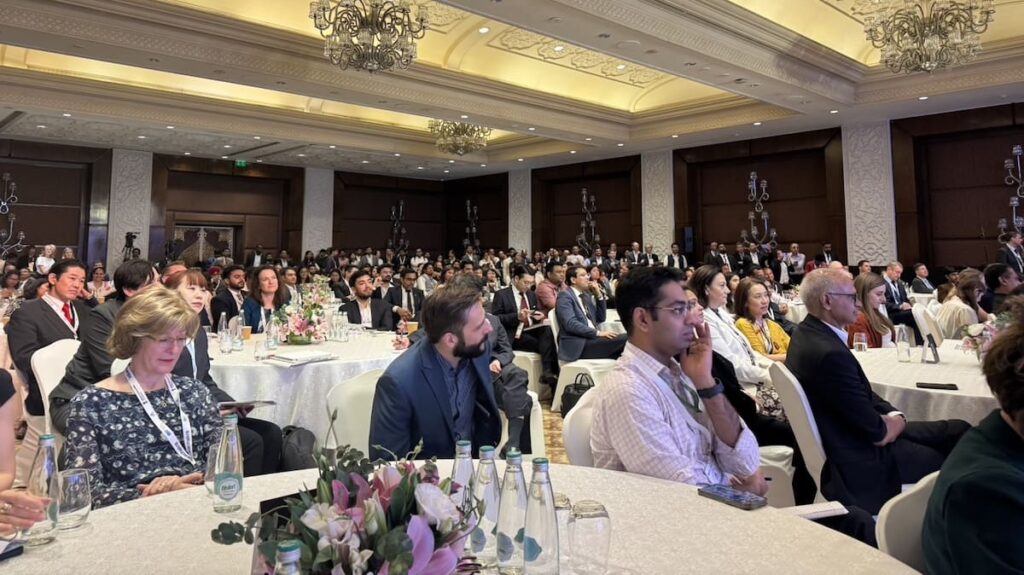As the COVID-19 pandemic nears the end of its second year, health systems worldwide continue to experience unprecedented strain, highlighting the need for solutions that make health care more effective, accessible, and affordable. Especially in the Asia Pacific, countries that experienced early success in pandemic management in 2020 now face new conditions that confound their exit strategies to a post-pandemic world.
Governments are encountering obstacles to vaccine procurement, manufacturing, and acceptance, and the emergence of new variants threatens the progress made in managing the spread of COVID-19. What lessons can be drawn from the Asia Pacific and other regions of the world? Looking ahead, the effects of climate change on human health will also challenge health systems in new ways. What healthcare, economic, and environmental innovations can be deployed to improve global economic and health system resilience in response to these new challenges?
The Reform for Resilience Commission gathers leaders from different regions and sectors to make the pandemic a catalyst for strengthening global institutional commitment to a healthier and more resilient model of global growth, especially in terms of public health, the economy, and the environment. The Asia-Pacific Hub of the Resilience Commission at the Center for Asia-Pacific Resilience and Innovation (CAPRI) is pleased to partner with the Miller Center, the North American Hub at the Harvard Chan School of Public Health, and the European Hub at the European University Institute School of Transnational Governance and Cambridge Public Health to present this global, online event on recent successes and challenges in pandemic management.
The event will start with a discussion on vaccine progress in the Asia-Pacific region and the unveiling of the Asia-Pacific Hub’s report, “Resilience in the Asia Pacific: Vaccines and the ‘Triple Challenge’,” on the region’s pandemic responses and vaccination efforts. The report’s themes are also highlighted in the October 25 op-ed in Nikkei Asia titled “Vaccine Equity Across Asia Pacific Will Strengthen Global Health,” by Malcolm Turnbull, co-chair of the Reform for Resilience Commission, and Syaru Shirley Lin, chair of the Asia Pacific Hub.
In the second half of the program, panelists will discuss the pandemic response in Europe, Asia, and the United States, and how health systems can be made more accessible, effective, and resilient around the world.
[trp_language language=”en_US”]
Event program
9:00 a.m. – 12:00 p.m. ET
9:00 – 9:20 a.m. | Opening Remarks
Prof. Michelle A. Williams, Co-Chair, Resilience Commission; Dean, Harvard TH Chan School of Public Health
The Honorable Chen Chien-jen, Commissioner, Resilience Commission; Distinguished Professor at the Genomics Research Center, Academia Sinica; Vice President of Taiwan (2016-20)
9:20 – 10:20 a.m. | Session 1: Vaccinating Our Way Out of the Pandemic
Enhancing development, manufacturing, distribution, and acceptance of vaccines in Asia Pacific
Prof. Syaru Shirley Lin, Commissioner and chair, Asia-Pacific Hub, Resilience Commission; Compton Visiting Professor, Miller Center of Public Affairs, University of Virginia (moderator)
Ms. Pam Cheng, Executive Vice President, Operations and Information Technology, AstraZeneca
Prof. Yik Ying Teo, Advisor, Asia-Pacific Hub, Resilience Commission; Dean, National University of Singapore Saw Swee Hock School of Public Health
The Honorable Malcolm Turnbull, Co-Chair, Resilience Commission; Prime Minister of Australia (2015–18)
Prof. Eng Kiong Yeoh, Commissioner, Resilience Commission; Professor of Public Health and Director, Centre for Health Systems and Policy Research, The Chinese University of Hong Kong
10:20 – 10:40 a.m. | Session 2: Finding Innovative Policy and Private-Sector Solutions to Public Health Challenges
Part 1 (10:20–10:30): Discussion of Asia-Pacific Hub’s report “Resilience in the Asia Pacific: Vaccines and the ‘Triple Challenge’ ”
Dr. Anneke Schmider, Research Director, Asia-Pacific Hub, Resilience Commission
Prof. Adam Kamradt-Scott, Professor and Chair of Global Public Health, School of Transnational Governance, European University Institute
Part 2 (10:30–10:40): Innovation and public health
Mr. Stan Shih, Commissioner, Resilience Commission; Founder and Honorary Chairman, Acer Inc.; Chairman, StanShih Foundation
10:40 – 11:40 a.m. | Session 3: Enhancing Resilience in Public Health
Making health systems in the U.S., Europe, and Asia Pacific more accessible, affordable, effective, and sustainable
Dr. Patricia Geli, Executive Director, U.S. Hub, Resilience Commission; Harvard TH Chan School of Public Health (moderator)
His Excellency José Manuel Barroso, Co-Chair, Resilience Commission; Chair of Gavi, the Vaccine Alliance; President of the European Commission (2004-14)
Prof. Chang-chuan Chan, Chair, International Advisory Board, Asia-Pacific Hub, Resilience Commission; Chair Professor of Public Health, National Taiwan University
Dr. J. Stephen Morrison, James R. Schlesinger Distinguished Professor, Miller Center, University of Virginia; Senior Vice President and Director, Global Health Policy Center, Center for Strategic and International Studies
The Honorable Alexander Stubb, Commissioner, Resilience Commission; Director and Professor, School of Transnational Governance, European University Institute; Prime Minister of Finland (2014-15)
11:40 a.m. – 12:00 p.m. | Closing Remarks
Mr. George Freeman, Commissioner and Founding Convenor, Reform for Resilience Commission; UK Minister for Science, Research, and Innovation
Dr. Bill Antholis, Director and CEO, Miller Center
Visit the event page at the Miller Center, University of Virginia
[/trp_language]
[trp_language language=”zh_TW”]
論壇全程摘要整理如下:
開幕
「堅韌社會再造委員會」聯合主席、Michelle A. Williams在會議開幕詞中感謝各國專家學者齊聚一堂,研討亞太地區和歐美各國如何走出新冠疫情陰影,憑藉創新政策和跨界合作來提升全球經濟與公衛體系應對疫情挑戰的堅韌力。「若我們選擇不幫助資源缺乏的國家,讓他們自行偵測、控制、對抗傳染疾病,」Michelle Williams 表示,「那我們是用石頭砸自己的腳,造成更大的危機。」 「堅韌社會再造委員會」委員、中研院特聘教授、前副總統陳建仁分析了目前全球疫情的發展及世界該如何與病毒共處。陳教授指出,世界各國應與COVAX 合作提升發展中國家的疫苗覆蓋率,「沒有人是孤島」。他並指出,要重振全球供應鏈和實現全球經濟復甦,我們亟需社會各界包括公共部門和私人企業的互信與合作。
第一場:如何透過疫苗接種走出新冠疫情陰影
「堅韌社會再造委員會」亞太中心委員、主席;維吉尼亞大學米勒中心康普頓訪問教授林夏如主持
前澳洲總理Malcolm Turnbull分享了澳洲疫苗採購與施打的經驗,並呼籲各國必須從此次新冠疫情中吸取教訓和總結經驗,推動社會各界在公共衛生和經濟發展等各個領域的改革,打造韌性社會,迎接下一次挑戰。
香港前衛生福利及食物局局長楊永強教授指出,圍繞疫苗效力和接種覆蓋率等公眾關心的議題,科學界和醫學界還有諸多細節亟待研究釐清,它們都與疫情期間的公共政策制定密切相關。楊永強教授呼籲公共政策制定者進行前瞻性的風險評估,更加關注公共訊息在社會的傳遞路徑,更有效地與公眾溝通。
新加坡國立大學蘇瑞福公共衛生學院院長張毅穎教授指出,新冠疫情加劇了世界各個地區、各個社會階層既有的不平等現象,這些不平等也會影響到疫苗在不同地區的接種。「與新冠共存」有賴於包括疫苗接種在內的各種公共政策,如何接地氣得落實在社區中,政府和專家需要特別關注社會弱勢群體在這一過程中面臨的風險,積極與大衆進行坦誠溝通。
AstraZeneca全球執行副總裁潘斌女士分享了AZ在新冠疫情以來以非營利模式與牛津大學合作研發和推廣新冠疫苗的種種努力,並呼籲各國政府、私人企業在進出口領域協調合作,確保全球供應鏈穩健,讓各國尤其是中低收入國家能夠獲得大眾能夠負擔得起的高效疫苗,走出疫情陰影。
第二場:創新政策與私人部門助力應對公衛挑戰
「堅韌社會再造委員會」亞太中心研究主管Anneke Schmider介紹了亞太中心在會議當天發表的研究報告《亞太地區的堅韌力:疫苗與「三重挑戰」》。報告指出,亞太地區當前圍繞新冠疫苗面對三重挑戰:公平分配,迅速施打,以及靈活研發製造。報告呼籲亞太各國與社會各界的合作,憑藉富有創意的政策實踐和跨界合作化解疫苗危機,共同打造地區堅韌力。
同樣擔任國際委員的施振榮董事長則表示,公共部門與私人企業應在科技創新領域加強合作,提升亞太地區疫苗研發與靈活生產的能力。台灣已具備能量來成為「全球疫苗代工中心」(CDMO Center),協助解決全球目前疫苗供不應求的問題。
第三場:加強公衛體系的堅韌力
「堅韌社會再造委員會」美國中心執行主任、哈佛大學陳曾熙公共衛生學院研究員Patricia Geli博士主持
「堅韌社會再造委員會」聯合主席、全球疫苗免疫聯盟(Gavi)主席、前歐盟委員會主席José Manuel Barroso在研討會中強調,新冠疫情迫切,全球同呼吸共命運,各國應當摒棄意識形態和地緣政治的分歧,展開務實合作,唯有如此我們才能戰勝疫情、走向未來。
亞太中心國際顧問委員會主席詹長權教授則說明,臺灣在新冠疫情期間的疫情防控和公共治理所取得的成績得益於臺灣社會普遍存在的互信,這些經驗可以爲亞太地區其他國家提供有益的借鑑。
維吉尼亞大學米勒中心傑出教授、戰略及國際研究中心、全球衛生政策中心資深副總兼主任J. Stephen Morrison介紹了美國當前疫情控制的狀況和挑戰。他對全球抗擊疫情的前景保持審慎樂觀,但指出中美關係正陷入僵局,嚴重阻礙了全球抗疫的進程。
「堅韌社會再造委員會」國際委員、歐洲大學學院跨國治理學院主任兼教授、芬蘭前總理Alexander Stubb在會議上分享了歐洲的抗疫經驗,指出各國政府在疫情中最關注的是如何挽救生命、施打疫苗以及重振經濟,並強調歐盟作為跨國地區組織為成員國的疫苗採購和分發作出了巨大貢獻。
閉幕
「堅韌社會再造委員會」創始召集人George Freeman,履歷新職擔任英國科學、研究和創新部部長,他回顧了「堅韌社會再造委員會」成立18個月以來在學術研究和政策倡議領域取得的成績,指出委員會致力於將新冠疫情化危為機,促成國際社會各界對健康經濟成長和韌性社會改革的共識。
美國維吉尼亞大學米勒中心主任兼首席執行官William Antholis總結了研討會的主要內容,並對各位與會嘉賓表達了誠摯謝意,期待「堅韌社會再造委員會」在未來進一步推動全球改革,造福社會。
[/trp_language]



